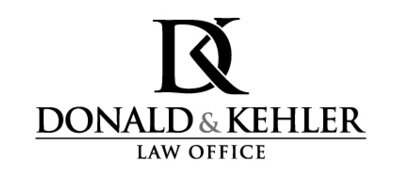Best Energy Regulatory Law Lawyers in Brandon
Share your needs with us, get contacted by law firms.
Free. Takes 2 min.
List of the best lawyers in Brandon, Canada
About Energy Regulatory Law in Brandon, Canada
Energy Regulatory Law governs the production, distribution, and consumption of energy resources within a specific jurisdiction. In Brandon, Manitoba, Canada, this area of law primarily involves regulations around electricity, natural gas, renewables, and sometimes oil. Authorities oversee how energy is generated, sold, and transmitted, as well as the environmental impacts of energy use. These laws aim to ensure safe, reliable, and fair access to energy services, while balancing environmental concerns and economic interests.
Why You May Need a Lawyer
Individuals and businesses in Brandon may find themselves needing an Energy Regulatory Law lawyer in various situations. For example, if you are starting a new business that requires significant energy consumption or you plan to generate your own energy through solar or wind, legal guidance is necessary. Homeowners and landowners may need advice on connecting alternative energy systems to the provincial grid or navigating regulatory approval for new infrastructure. Disputes with utility providers, issues regarding energy rates, or concerns about environmental compliance are other common reasons to seek legal advice. A lawyer specialized in this field ensures your rights and interests are protected while helping you stay compliant with complex regulations.
Local Laws Overview
In Brandon, energy regulation falls under both federal and provincial jurisdiction. The Manitoba Public Utilities Board (PUB) is the primary regulator for electricity and natural gas rates within the province. Manitoba Hydro acts as the main utility provider, and as such is subject to regulation regarding service quality, rate changes, and expansion projects. Any energy development, such as wind farms, solar installations, or new pipeline projects, requires multiple permits and compliance with environmental assessments. Additionally, the Clean Environment Commission may become involved in reviews of major energy projects. Recent years have seen growing emphasis on renewable energy and environmental sustainability, which has influenced many regulatory changes.
Frequently Asked Questions
What is energy regulatory law?
Energy regulatory law includes all rules and procedures that govern the production, sale, distribution, and use of energy resources, including electricity and natural gas.
Who regulates energy in Brandon, Manitoba?
The Manitoba Public Utilities Board oversees most energy regulatory issues, especially those involving electricity and natural gas rates. Manitoba Hydro is the primary energy provider.
Do I need a permit to install solar panels at my home or business?
Yes, installing a solar energy system almost always requires permits and may need approval from Manitoba Hydro, as well as compliance with building and electrical codes.
What should I do if I have a dispute with Manitoba Hydro?
If informal resolution efforts fail, you may file a complaint with the Manitoba Public Utilities Board or consult an energy law lawyer to explore your legal options.
How are energy rates set in Brandon?
Energy rates are established through formal rate-setting applications reviewed and approved by the Manitoba Public Utilities Board to ensure they are fair and reasonable.
Can I produce and sell my own energy in Brandon?
Small producers may be allowed to generate energy for their use and, in some cases, sell excess power back to the grid, but this is subject to regulatory approval and safety standards.
What laws address environmental impacts of energy projects?
Both provincial and federal laws, such as the Environment Act and regulations enforced by the Clean Environment Commission, address environmental reviews and approvals for energy projects.
Are there special requirements for energy companies operating in Brandon?
Yes, companies must comply with licensing, safety standards, environmental reporting, and detailed regulatory oversight as mandated by provincial bodies.
Can I challenge a proposed energy development in my community?
Residents may participate in public hearings or environmental review processes and, in certain situations, may initiate legal challenges if they believe procedures are not followed correctly.
How can a lawyer help with energy regulation issues?
A lawyer can help you understand your rights, guide you through regulatory processes, represent you in disputes, prepare applications, and ensure all compliance requirements are met.
Additional Resources
Individuals seeking more information or legal advice may find the following organizations helpful:
- Manitoba Public Utilities Board - Oversees energy rate setting and consumer complaints
- Manitoba Hydro - Main provider of electricity and natural gas services
- Manitoba Clean Environment Commission - Involved in environmental reviews of major projects
- Manitoba Sustainable Energy Association - Offers guidance on renewable energy initiatives
- Law Society of Manitoba - Provides referrals to qualified energy regulatory lawyers
Next Steps
If you require legal assistance with an energy regulatory issue in Brandon, Canada, start by gathering all relevant documents and information related to your matter. It is helpful to write down any specific questions or concerns you have. Next, research local lawyers who specialize in energy regulatory law, and contact them to schedule a consultation. Many lawyers offer a preliminary assessment to help you understand your legal standing and potential options. If your situation involves an urgent issue or regulatory deadline, act as soon as possible to protect your rights. For general information and support, you can also reach out to the governmental bodies listed above before seeking independent legal advice.
Lawzana helps you find the best lawyers and law firms in Brandon through a curated and pre-screened list of qualified legal professionals. Our platform offers rankings and detailed profiles of attorneys and law firms, allowing you to compare based on practice areas, including Energy Regulatory Law, experience, and client feedback.
Each profile includes a description of the firm's areas of practice, client reviews, team members and partners, year of establishment, spoken languages, office locations, contact information, social media presence, and any published articles or resources. Most firms on our platform speak English and are experienced in both local and international legal matters.
Get a quote from top-rated law firms in Brandon, Canada — quickly, securely, and without unnecessary hassle.
Disclaimer:
The information provided on this page is for general informational purposes only and does not constitute legal advice. While we strive to ensure the accuracy and relevance of the content, legal information may change over time, and interpretations of the law can vary. You should always consult with a qualified legal professional for advice specific to your situation.
We disclaim all liability for actions taken or not taken based on the content of this page. If you believe any information is incorrect or outdated, please contact us, and we will review and update it where appropriate.










